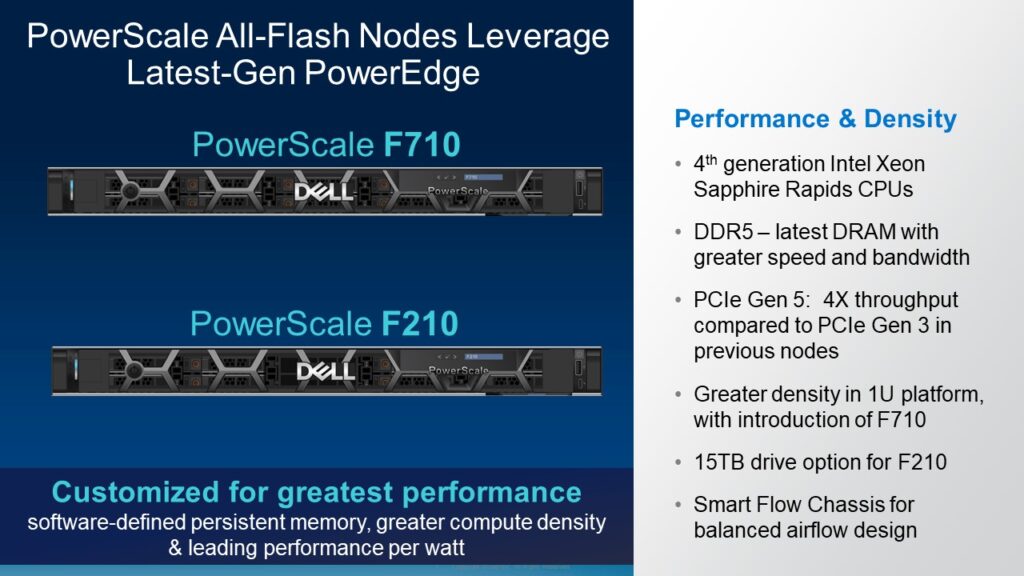Dell Technologies today announced the introduction of two new all-flash storage arrays, the PowerScale F210 and F710, as part of its commitment to delivering AI-optimized infrastructure. The PowerScale platform is designed to be AI-ready, offering exceptional performance, scalability, efficiency, federal-grade security, and multi-cloud agility.

Here’s a quick look at the new offerings:
PowerScale F210
- Targeted Performance and Capacity: The F210 is designed for scenarios requiring high performance but with smaller capacity needs. It makes it an ideal solution for businesses needing fast, efficient storage but not requiring massive data capacity.
- Innovative Storage Utilization: It introduces a 15TB QLC drive, which effectively doubles the capacity of its predecessor, the F200. This enhancement is significant for businesses looking to optimize their storage utilization without expanding their physical footprint.
- Compact Design: The F210’s design is likely focused on space efficiency, making it suitable for data centers with limited space but requiring high-speed storage capabilities.
PowerScale F710
- Balanced High Performance and Capacity: The F710 offers a blend of high performance and larger capacity in a 1RU (Rack Unit) configuration. This design caters to businesses with substantial data storage needs without compromising on performance.
- Increased Node Density: It can accommodate up to ten drives in a 1U configuration, translating to a 25% increase in node density compared to the previous model, the F600. This feature is crucial for businesses looking to maximize storage density and efficiency in their data centers.
- Significant Performance Improvements: Customers, like Broadcom’s CIO, have noted more than 25% performance improvements in EDA (Electronic Design Automation) workloads with the F710, also highlighting its contribution to improved data center sustainability.
Analysis
The new PowerSale F210 and F710 models cater to a range of storage needs, with the F210 aimed at scenarios requiring high performance but smaller capacity, and the F710 designed for situations needing both high performance and larger capacity.
Dell has highlighted significant performance improvements in the new offerings, including better streaming read/write performance and increased efficiency, particularly with the F710 compared to its predecessor. These enhancements, alongside the latest OneFS operating system update, should provide a substantial boost in storage performance.
Positioned as AI-ready, the new PowerScale models align nicely with the growing trend of integrating AI and analytics into enterprise storage solutions. We like how Dell is segmenting its PowerScale lineup to accommodate a variety of workloads from entry-level AI to intensive generative AI applications.
While the storage market remains very competitive, Dell’s range of drive options and the targeted capabilities of its PowerScale models give the company a nice edge relative to other offerings.




